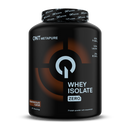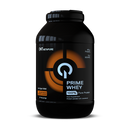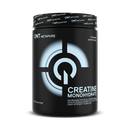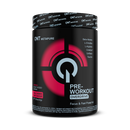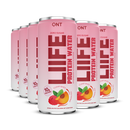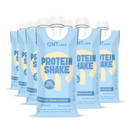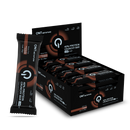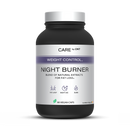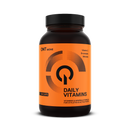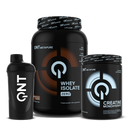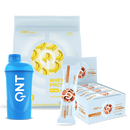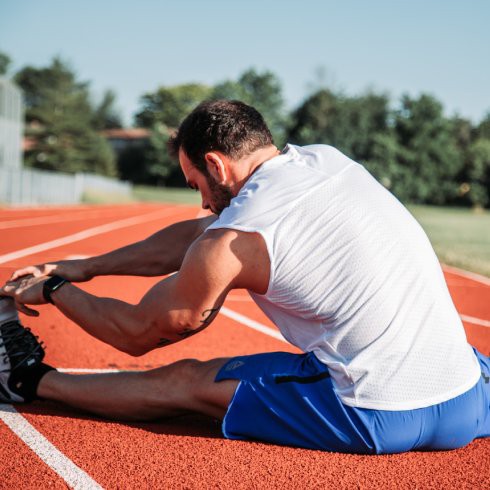Table of Contents

If you are a top athlete or simply a lover of training, you must know how much weight training and nutrition go hand in hand! It is therefore important to recover well after a training session. We'll give you the most important foods to help your body recover in the best possible way! We'll talk about proteins, carbohydrates, fats, as well as the foods where you can find them in large quantities.
What happens in the muscles during training
When you train, your muscles are subjected to intense and sustained stress. The muscle fibres are constantly under strain, which eventually leads to their gradual breakdown and wear and tear. In addition, the energy reserves in your muscles are also depleted, further increasing the tension and fatigue felt in your muscles. All this can lead to micro-tears in the muscle fibres and cause muscle soreness and fatigue. In short, training is a process of breakdown and fatigue for your muscles, which requires proper recovery to keep them healthy and strong.
Micro-tears in muscle fibres
During intense training, muscle fibres undergo considerable strain, which can lead to micro-tears in muscle tissue. Don't panic, these micro-tears are a natural process in the body that occurs when muscle fibres are stretched beyond their normal capacity, causing minor damage to the muscle fibres. Although this may seem like an unwanted effect of training, these micro-tears are actually essential for stimulating muscle growth. However, this can cause an inflammatory response that can lead to muscle soreness and fatigue, which makes muscle recovery all the more important.
Depleted energy reserves
When exercising, your body uses the energy reserves stored in the muscles to produce the necessary effort. Obviously, these reserves are not unlimited and can be depleted over time, leading to muscle fatigue and reduced performance. Replenishing these energy reserves is therefore essential for effective muscle recovery and for optimal preparation for the next training session.
What happens in muscles during recovery
After training, muscles need time to recover and repair. This recovery period is essential to stimulate muscle growth and improve performance. Here's what happens in the muscles during recovery.
Muscle protein synthesis
Muscle protein synthesis is a crucial step in the muscle recovery process. It involves the repair and rebuilding of muscle fibres damaged during training. This process also allows the addition of new muscle fibres and the improvement of their strength and endurance. Protein synthesis requires a sufficient amount of essential nutrients, such as amino acids, as well as an adequate supply of energy to support the muscle regeneration process. Therefore, a balanced diet tailored to your individual needs is crucial to optimise muscle protein synthesis and promote muscle recovery.
Reducing muscle inflammation
When your muscles experience micro-tears during training, the body reacts with a natural inflammatory response. This inflammation can be beneficial in the short term to stimulate muscle growth, but prolonged inflammation can cause muscle soreness and decreased performance. Muscle recovery plays an important role in reducing muscle inflammation, helping muscles to heal and recover more quickly to avoid excessive inflammation. This allows muscles to return to their normal state more quickly, improving performance and the ability to train more intensely in the future.
Replenishing energy stores
During exercise, your muscles draw on energy stores to function. After exercise, these stores must be replenished so that the muscles are able to meet the demands of the next workout. The time needed to replenish energy stores depends on the intensity of the training and the diet of the exerciser. This step is crucial to maintaining optimal performance in the long term.
Muscle boosting
Meal planning for optimal muscle recovery
Meal planning is an important part of sports nutrition for muscle recovery. You need to eat balanced, nutritious meals containing protein, carbohydrates and healthy fats. Snacks between meals can help keep energy levels high and avoid cravings. Nutrient-rich foods such as vegetables, fruit, whole grains and lean protein are recommended for optimal muscle recovery. You should also avoid processed and high-calorie junk foods, as they don't provide the nutrients the body needs to recover after training ... well, once in a while doesn't hurt!
The importance of hydration for muscle recovery
Hydration is essential for muscle recovery after training. Water helps transport nutrients through the body and remove metabolic waste products produced during exercise. You need to drink enough water to compensate for water loss through sweating. Sports drinks containing electrolytes can be useful for those who sweat heavily, as they help replenish electrolytes lost during exercise. Water-rich foods, such as fruits and vegetables, can also help maintain adequate hydration.
Dietary
As you probably know, protein is essential for muscle recovery after training, as it provides the amino acids needed to rebuild and repair damaged muscle fibres. Athletes need sufficient protein to maintain adequate muscle mass and to promote muscle gain. Quality protein sources include meat, fish, poultry, dairy products, legumes and nuts. For vegetarians and vegans, protein can be obtained from foods such as legumes, nuts and seeds. Dietary supplements, such as whey protein powder and casein also provide a high amount of protein in a convenient format! However, keep in mind that consuming too much protein can be harmful to your health, so it is recommended that you consult a health professional before taking any supplements.
Carbohydrates provide energy to the muscles during training, and are also important for replacing muscle glycogen stores used during physical activity. Carbohydrate sources include fruits, vegetables, whole grains and grain products. Complex carbohydrates, such as sweet potatoes, whole grains and fruit, are preferable to simple carbohydrates, such as sweets, as they provide sustained energy. So you need enough carbohydrates to maintain high energy levels and support physical activity! The amount of carbohydrate you need depends on the type and intensity of your physical activity, as well as your height and weight.
Sleep
Sleep is an important factor in muscle recovery. During this rest period, the body has the opportunity to regenerate and repair muscle fibres damaged during exercise. Sleep also plays a crucial role in the regulation of growth hormones, which stimulate muscle growth and repair. To optimise muscle recovery, it is recommended to get enough sleep and preferably in a quiet, comfortable environment.
Coach's tips.

- Think about getting enough water during the day! As an athlete, you should drink at least 2.5 litres of water per day!
- As mentioned before, sleep is key in muscle recovery, so avoid sleepless nights and get enough sleep to allow your body to recover properly!
- We know it's tempting, but avoid as much as possible processed food that will do nothing for your recovery!
Read more
 Training
TrainingGroup classes more effective than classroom work?
We often ask this question: which one is the most effective? Group training or individual workout programs in the gym? Let's first consider the two...
Summer body edition for men: How to prepare your body?
Gentlemen ? The return of the sun and its warm rays are almost here! The degrees are slowly but surely rising, but what about your muscles? Ouch! I...
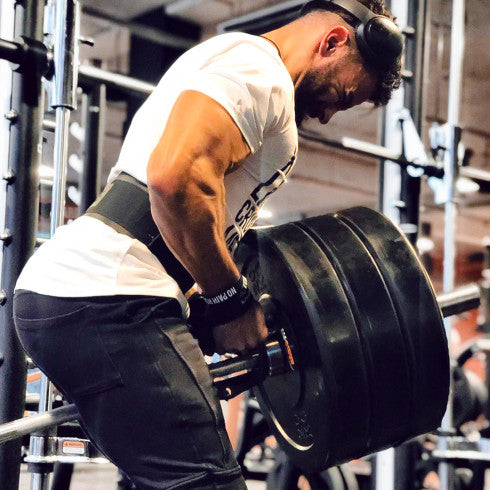 Training
TrainingSHOULD YOU USE A WEIGHT BELT FOR LIFTING?
The next person you see in the squat cage with 20 kg on the bar and a big belt, maybe you can make a comment after reading these few lines.
 Our Tips
Our TipsHow to train flexibility?
The way to train flexibility is often highly controversial. Depending on the sports you practice, you work differently. A dancer and an athlete tra...
 Dietary Supplements
Dietary SupplementsWhy take turmeric?
There are hundreds and hundreds of spices with different properties and turmeric is obviously one of them! It is a spice that is generally quite we...
Which fat burner to choose?
To lose weight and burn fat, there is no secret: you have to do sport and take care of your diet. However, it is possible to speed up the process t...
 Our Tips
Our TipsFasting and sport: 9 tips for training during Ramadan.
Working out during Ramadan is not easy. Not eating from sunrise to sunset is a major challenge for athletes wishing to continue their activities. T...
 Our Tips
Our TipsSummer holidays: How to limit the damage?
On holiday, we often tend to let ourselves go. Unless you're a hardcore sportsman, you tend to abandon your trainers and indulge in a lot of dietar...
 Health
HealthHow to preserve your joints?
We have a total of about 400 joints located throughout the body. We therefore quickly understand why joint problems are quite common. You don't hav...
 Our Tips
Our Tips9 good reasons to do sport.
Sometimes the urge to exercise is not always there. And although we always tell ourselves that this year will finally be the right one to get back ...


